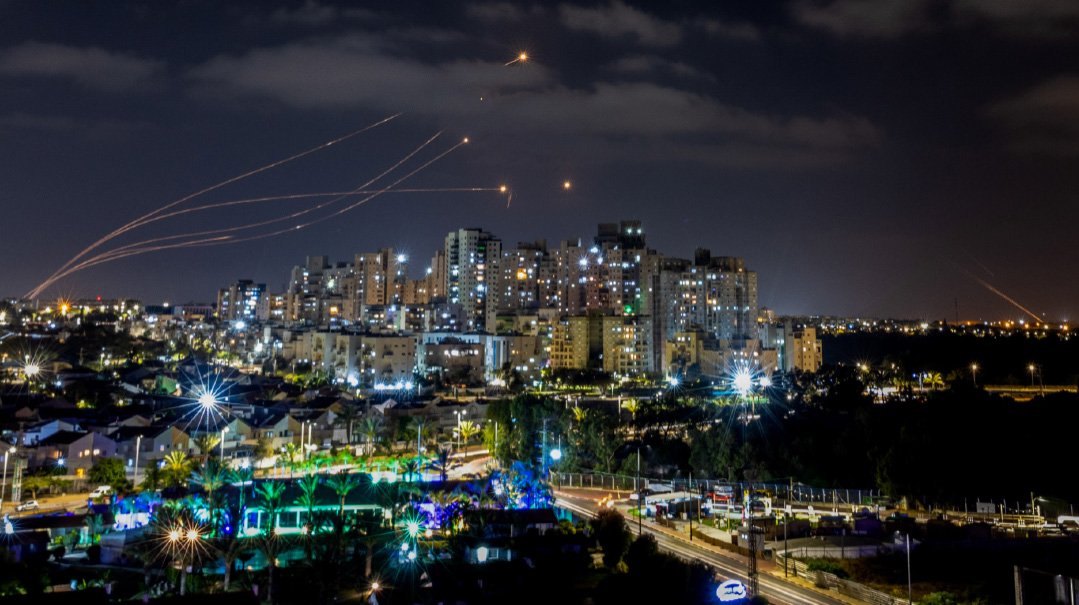Déjà Vu in Gaza

Once again, we have merely kicked the can down a very dangerous road

Photo: Flash90
We’ve seen this all before. And once again, the outcome is the same.
Terrorist groups based in the Gaza Strip — which Israel handed over to Hamas in the 2005 disengagement after expelling 9,000 Jews from their homes and farms — find a pretext to fire rockets on Israeli towns near the strip.
This time, the pretext was the death of Khader Adnan, a Palestinian Islamic Jihad (PIJ) terrorist whom Israel arrested a dozen times over the years for incitement to terror, and who spent the last 86 days of his wretched life on a hunger strike.
Israel retaliates for the rocket attacks by conducting pinpoint, targeted assassinations of as many PIJ leaders as it can find who remained above ground. The Israeli government boasts to the international media about the IDF being an ethical army, avoiding civilian casualties at all costs, even though the terrorists have no compunction about embedding themselves and their weaponry in heavily populated areas.
The terror groups react to the IDF’s morality play by escalating the conflict, firing rockets at Tel Aviv and other major Jewish population centers.
The government and the military pat themselves on the back for the Iron Dome and David’s Sling, with its proven proficiency for intercepting incoming missiles and keeping human casualties to a bare minimum, while simultaneously negotiating for a cease-fire.
The minute the cease-fire begins, the government congratulates itself for “restoring deterrence.” The next morning, they reopen the border crossings between Gaza and Israel, as if nothing has happened.
Before the latest cease-fire was announced on Motzaei Shabbos, a Channel 12 news poll showed that 54% of Israelis supported continuing the military operation while just 29% favored a halt.
On Sunday morning, Meir Ben Shabbat, chair of the Misgav Institute for National Security, confirmed the government’s limited goals, saying that the IDF’s “Operation Shield and Arrow was meant to buy another period of relative quiet, rather than to bring about a fundamental change in Gaza.”
Ben Shabbat, who served as head of Israel’s National Security Council and also spent 28 years in the Shabak, said Israel’s next steps will also be incremental, using the periods of relative calm to conduct a systematic, low-profile campaign to prevent the enemy’s rearmament in Gaza.
“This is because the enemy’s readiness in this regard is a key consideration in his decisions about whether and when to initiate an attack against Israel and has a decisive impact on his performance when fighting does erupt,” Ben Shabbat said.
While nobody craves a long, drawn-out military conflict whose results are unpredictable, the terrorist groups will choose new leaders to replace the ones Israel eliminated, if they haven’t already.
With all due respect to Meir Ben Shabbat, the terrorists don’t have to work so hard to rearm. The 1,469 missiles they fired at Israel during the recent campaign probably represent no more than 10% of the arsenal they have stored away for a rainy day.
Israelis who spent nights hunkered down in shelters, or who had to move their simchahs to different venues, or just plain canceled their Shabbos plans to stay out of harm’s way, are left with the same sick feeling in the pits of their stomachs that, once again, we have merely kicked the can down a very dangerous road.
(Originally featured in Mishpacha, Issue 961)
Oops! We could not locate your form.







